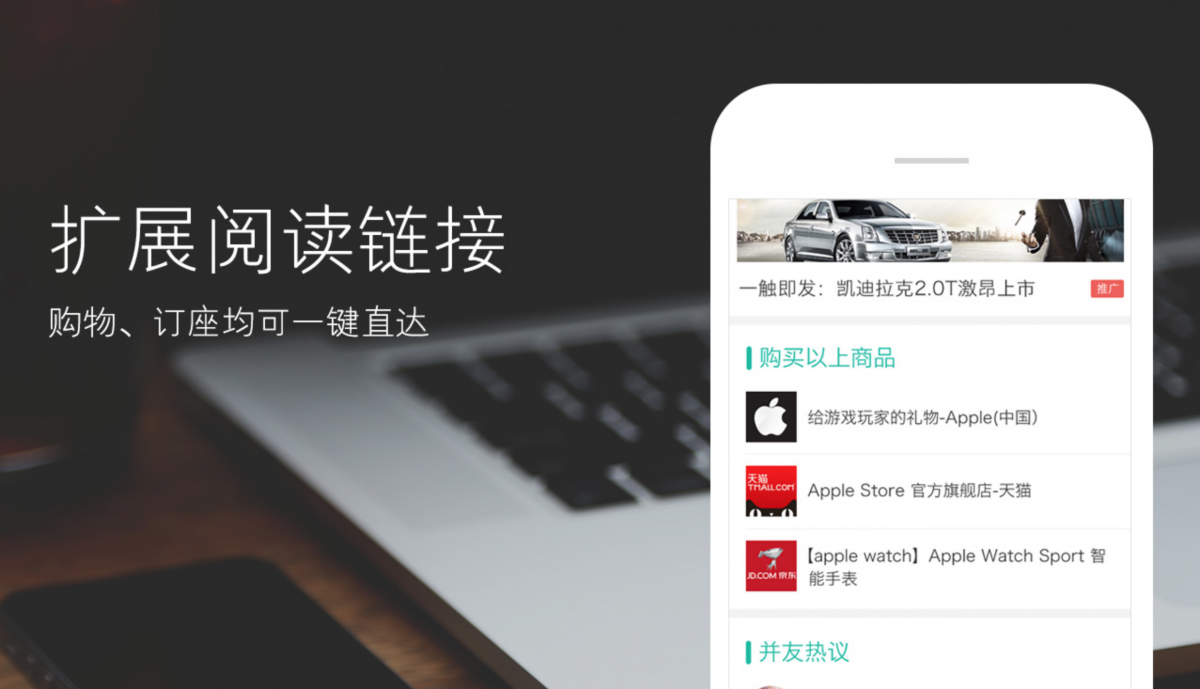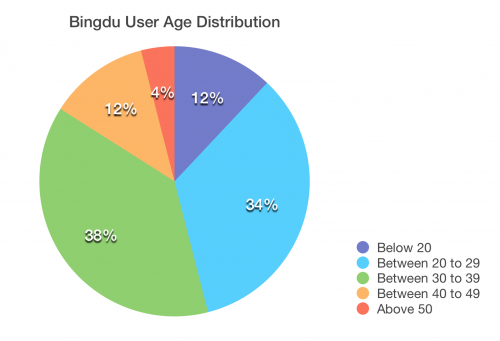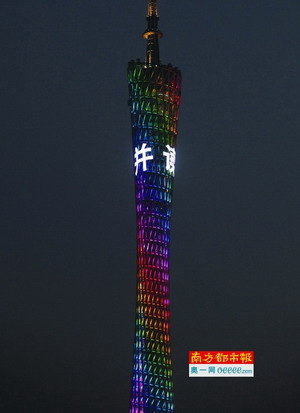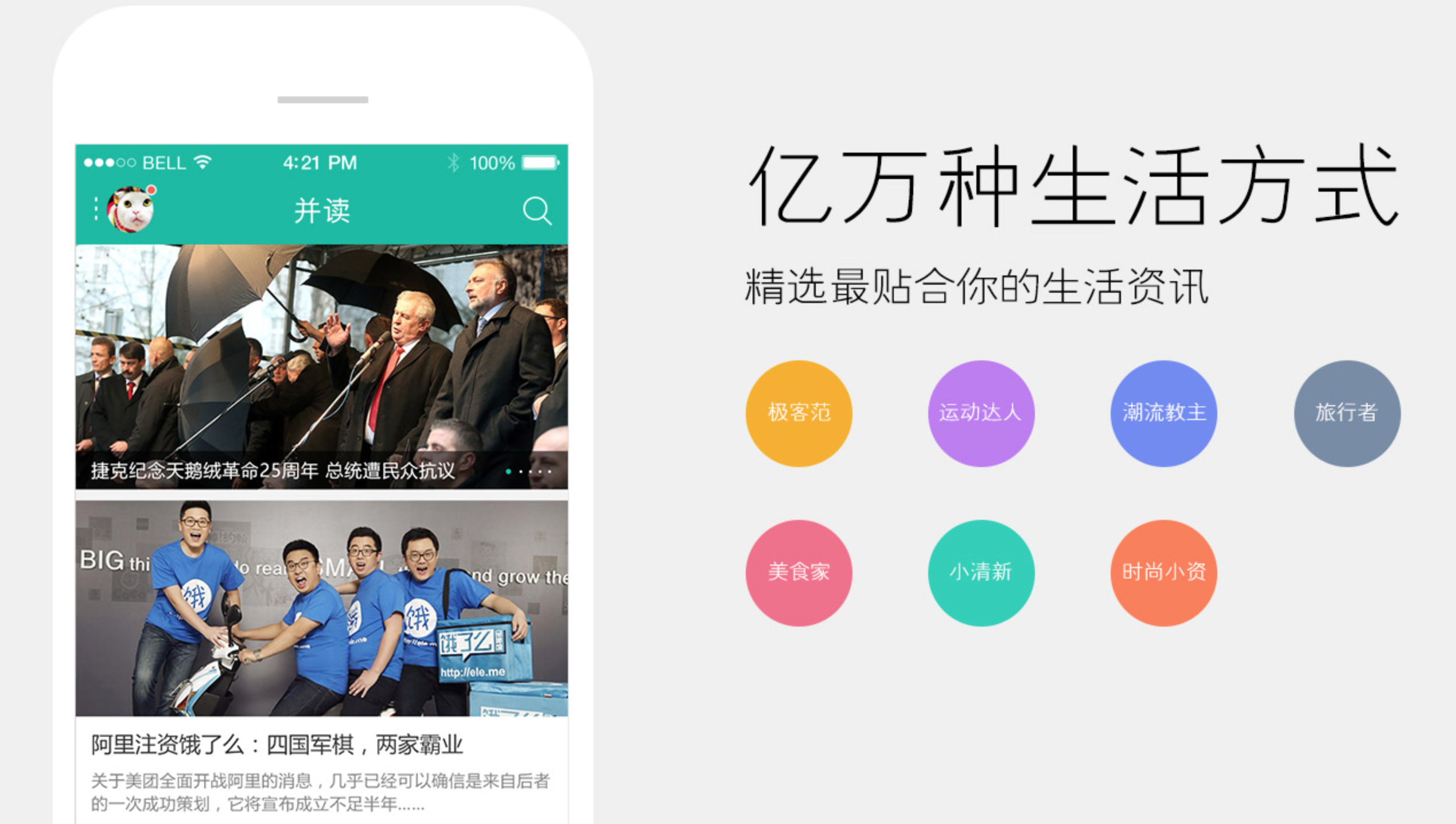How a Chinese news app has users earning money reading and sharing news
Bingdu is a Chinese news app that allows users both to read the news and make money off their experience. It was downloaded nearly 5 million times within two months of its launch in April 2015 and it allows readers to share in the advertising revenue with Southern Metropolis Daily, the Chinese tabloid that released the app. How? The more advertisements the app could attract, the more money a frequent user could make.
The rules of earning money through Bingdu are simple. Once a user downloads the app, signs in and starts reading, she will be awarded points based on several factors, including the amount she has read and shares within her social network. The points earned can be exchanged for money or other gifts. Reading ads and sharing news nets more points than reading and not sharing.
To date, Bingdu has been downloaded nearly 80 million times. It has more than 10 million monthly active users, 40 percent of whom log in every day. Popular stories tend to garner more than 100,000 hits.
Storybench spoke with Fei Wang, the editorial director of Bingdu, about how he and his team run the app. The following are edited portions from a recent phone interview with Wang. The interview was conducted in Chinese and translated into English.
What is Bingdu?
Bingdu was developed by Southern Metropolis Daily, which is part of the giant Southern Media Group based in Guangzhou, China. Supported by one of the China’s top media groups and sharing the news with hundreds of other media groups in China, Bingdu has a prominent advantage on news collecting and editing. All the original content published on the various platforms of Southern Media Group are found on Bingdu, including the most serious investigative reports and the latest breaking news.
Who are your target users?
Our target users are college students and young white-collar workers who are news-savvy, enjoy sharing information, and want to be heard. Bingdu can actively analyze their preferences and recommend selected stories according to individual customization based on big data and algorithms. We have 16 classified news channels. The ones with highest traffic are hard news, entertainment, wealth, health, food, and sports. We also have planned several special topics for users to interact with. The most popular ones are Bingdu College, which aims at spreading financial and economic knowledge, and Weekends Entertainment, which introduces the latest films or TV series. We also want to establish an open platform where outstanding writers can provide original, high-quality stories and get tips and share in advertisement revenue.
How do users react to your ads?

The ads displayed on the start page reach the most users, after which the most trafficked are banner ads and ads in the news feed. In general, ad traffic is much higher than daily news traffic when there are no popular news topics – or “hot topics” – being discussed. Our users are more likely to leave comments and share stories on Bingdu than on other platforms because they stand to make a profit off them.
Although our users tend to get fewer than 50 points per day on average, which can be exchanged for US$0.04, they have shown tremendous interest in monetizing those points. So the app has set up limits for the chances to exchange those points for money. Users can also exchange the money for mobile data or other rewards.
How do you keep users interested?
Monetizing the reading experience is just a gimmick to attract users. We are aware that we could not count on this to keep their attention forever.

Before we develop any new products, the first thing we do is to dig into the needs of users. As we can see from our server-side data, 12 percent of users are below 20, 34 percent are between 20 and 29, 38 percent are 30 to 39, 12 percent are 40 to 49, and 4 percent are above 50. Their opinions are indications of the popularity of certain news items and good references for the newspaper to optimize their products.
For example, before the 2015 college entrance examination, we published a story about surrogate exam-takers in Nanchang. It was a nation-wide sensation, not only because the story itself is outrageous but also because it was the first time an influential story was published on a news app before its mother newspaper in China. We also planned a series of stories around the college entrance examination that could make up for the space limitations of the newspaper. We got more than 6 million hits and 310,000 comments in total, which set a new record for the newspapers and their apps in China.
We also have a professional editorial team. After our software grabs the “hot topics” from other mainstream news websites, our editors will select the ones that fit in with our values, do some editing and publish it. As for sensitive news, our chief editor will be the last gatekeeper and check out the content himself.
What techniques did you use to create this app?
Compared to investigative news reporting skills, the technique is the weak point of Southern Media Group as well as other traditional media corporations in China. But during Bingdu’s development, we managed to get the top computer science geeks in China to work with us. We cooperated with a few development platforms for the app’s construction but the core algorithm and the daily iteration of Bingdu are developed independently. Our team has developed an algorithm which can capture users’ preferences within 200 seconds, 30 percent faster than Today’s Headlines, one of the most popular news apps in China.
The technical team used Kafka, a technique to build real-time data pipelines and streaming apps, to collect users’ behavior data. We also used Spark, an engine for big data processing, to make user preference-based machine learning more effective to increase the accuracy of content recommendation.
What are your plans for the app into the future?

Although our rewards system has been a great success, we are still exploring the business operation model because our revenue is not enough to cover the marketing promotion cost and what it costs to run the business. We need to attract financing constantly to bring in new talent, pay back the users, and so on.
Our current main business is advertising and information services, like start page ads, news feed ads, content output, business gain sharing, game and apps promotions, etc. Our goal is to build a platform that operates somewhat like a modern lifestyle look book, through which users can easily find what they want and purchase the service or products they want with a few clicks.





